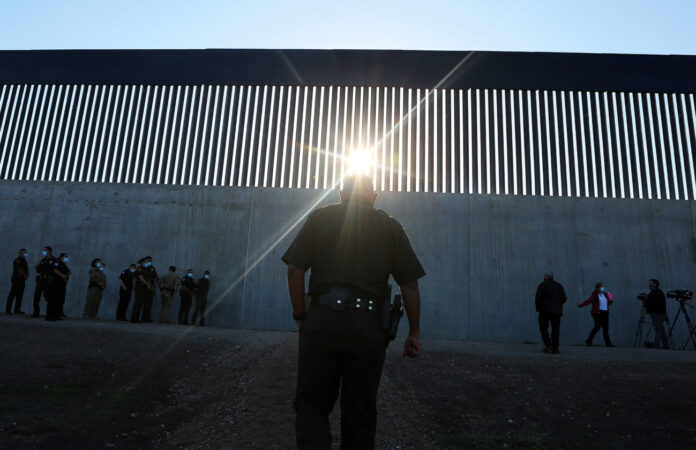
Much began to change hours into a new presidency Wednesday, with an executive order penned to halt border wall construction as a larger number of immigration cases also awaits a fledgling administration.
According to a newly released report, the new administration will inherit more than two times the immigration cases than were backlogged prior to Donald Trump’s presidency.
When President Joe Biden took office Wednesday, there were more than 1,290,766 deportation cases pending before the immigration courts — more than two times the number of cases when Trump took office in January 2017 with roughly 542,411 people with cases before the courts, according to a report from the Transactional Records Access Clearinghouse.
TRAC — a non-partisan, Syracuse University-based project that tracks data from U.S. Immigration and Customs Enforcement and other federal agencies — stated in its report that the rate of growth of backlogged cases grew 16% from January 2017 through the end of that fiscal year, and more than 20% during the following fiscal year.
The report adds that even if the new administration halted immigration enforcement entirely, it would still take more than the new president’s entire first term in office — assuming pre-pandemic case completion rates — for the cases now in the active backlog to be completed.
Nationally, TRAC’s report states the average wait for a court hearing date is now 1,642 days — more than four and a half years.
For another 50% of the cases backlogged — their wait will be at least 1,425 days — nearly four years.
In the extreme cases, or the top 5% who have been longest in the queue, the wait time is now at least 3,558 days — almost 10 years.
Locally, there are 17,060 cases in immigration courts in Harlingen and another 234 cases in Los Fresnos, backlogged.
In Harlingen it takes on average a little more than two years for a court hearing, while the maximum wait for a court hearing in the Harlingen courts is in line with the national average of nearly 10 years.
In Los Fresnos, the average wait is more than four months, while the maximum wait is more than four years, records show.
Among the 35 courts with at least 10,000 pending cases, the longest average wait time — 2,324 days or 42% higher than the national average — was found in the Denver Immigration Court.
In second place was the New Orleans Immigration Court where cases in the backlog had been waiting on average 2,120 days.
This was followed by the Arlington Immigration Court with 1,899 average wait days until hearings were scheduled.
TRAC’s report also contradicts an oft-repeated talking point from the Trump administration that states a majority of immigrants are dangerous and pose a national security risk — a fact proven false time, and time again. The most recent report shows almost everyone in the court’s current backlog — 98.2% — have only been charged by the government with purely immigration violations.
Just 1.3% of individuals with cases in the court’s backlog involve alleged criminal activity that constitute deportable grounds under the Immigration and Naturalization Act.
There are 200 countries represented in the nearly 1.3 million cases backlogged in immigration courts; nearly 25% from Guatemala, followed by Honduras, and then Mexico, records show.
Of those countries, El Salvador with 1,923 days — or nearly 20% higher than the national average wait, has the highest average wait time.
People with cases from Mexico had the next highest average wait times at 1,875 days, followed by those from China with an average wait time in the queue of 1,751 days. Among the top 10, Cubans had the lowest average wait times — 958 days. Individuals from Venezuela were next lowest with 1,130 days, records show.
Among executive orders put in place Wednesday include funding for border security at ports of entry, where more than 90% of the illicit drugs come through, and a pause to border wall construction that was initiated as part of Trump’s executive order to use Department of Defense funds for the construction.
Another bill proposed by the Biden administration would provide legal counsel for unaccompanied minor children in immigration courts, under current law young children appear before a judge with no legal representation.
The administration also announced a robust plan that would provide a path to citizenship for millions of undocumented people in the country as part of a long-term goal for comprehensive immigration reform — something the Obama administration failed to pass during its eight years in office.
Missing from the “Day 1” executive actions was a “100-day moratorium on deportations,” despite demands from immigration advocates for the action for hundreds of thousands
Additionally, the Biden administration will seek to strengthen protections for recipients of the Deferred Action for Childhood Arrivals program, a program that was in danger of being rescinded until a recent Supreme Court decision.



